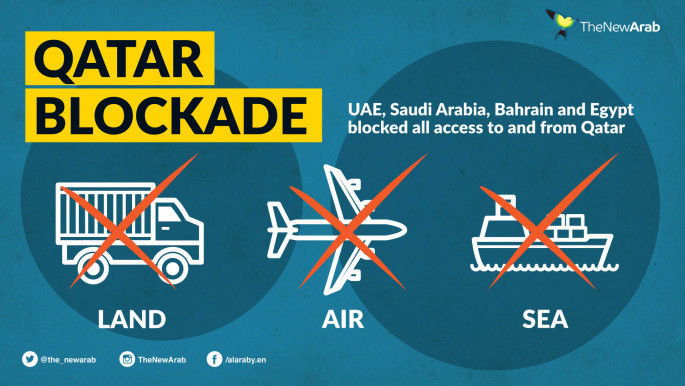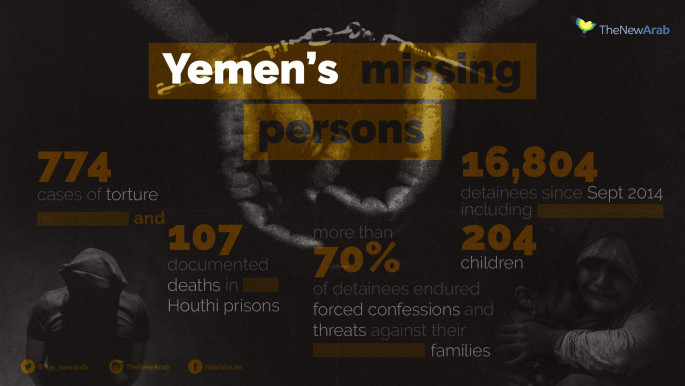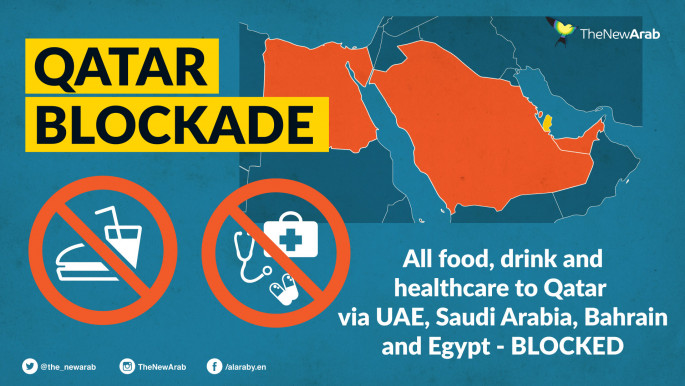
Saudi Bullying of Qatar: A Spurious Game of Thrones Crumbling
The vengeful encirclement of the tiny, rich emirate of Qatar has put the United States in an awkward position. Washington must take the lead in resolving this potentially deadly feud. If not checked, the GCC could disintegrate, Sunni disarray would become more ruinous, and chaos, instability, and terrorism would sweep the region.
More importantly, President Trump's impetuous rush to embrace the Saudi-UAE action could seriously harm America's long-term interests regionally and globally. The US ability to manage its strategic maneuverability to fight al-Qaeda in Yemen and elsewhere and the Islamic State group in the greater Middle East and to contain Iran's regional ascendancy are already becoming severely limited - an uncomfortable outcome of the Saudis flexing their muscle in the neighbourhood.
 |
|
Let's be clear, the Saudi-UAE war-like action against Qatar would not have been attempted on such a scale without these two states believing - rightly or wrongly - that they had a green light from Washington. Yet the Saudis have already failed. Their action was not about Qatar or Qatar's support of terrorism. It was all about facing down Iran. The Saudis targeted Qatar hoping to divert Washington away from three main issues that have bedeviled them and, therefore, to bring them two ultimate prizes. So far, the gamble has not paid off.
The Saudis used their well-oiled public relations and influence-peddling machine in Washington, together with the lavishly financed anti-Qatar campaign by the UAE ambassador Yousef al-Otaibi, to discredit Qatar and poison the view of senior policymakers in the Trump administration against the tiny, rich emirate. The Saudis underscored this "hearts and minds" campaign to woo the administration with the unprecedented adulation they showered on the president during his recent visit to Saudi Arabia. They obviously succeeded in selling him a fake bill of goods detailing the grievous sins against Qatar, which unfortunately he bought lock, stock, and barrel.
According to a less charitable explanation in The New York Times over the weekend, President Trump has made millions of dollars over the years in real estate and golf course deals with Saudi and UAE royals, but not with Qatar. Accordingly, his immediate support of the Saudi-UAE blockade of Qatar and unproven charge that Qatar is "a funder of terror at a very high level", raise the "appearance of conflict of interest" between his roles as a businessman and president.
Had Qatar joined Trump and his family in lucrative business deals years ago to build a Trump Tower or a golf course in Doha, would the president have taken sides against the small emirate in the current conflict? When Saudi Arabia refused to build the Central Command's forward airfield with its 10,000 troops in the country because of anti-Americanism within the population, Qatar offered to have the airfield built on its territory. It assumed such a project would be a tangible gesture of its commitment to American security in the region. The Qatari ruler perhaps now realises that a business deal with the Trump family is more critical than a military installation, no matter how critical to America's military posture in the fight against terrorism.
The three issues that Riyadh wanted to gloss over in its aggression against Qatar include the Saudi debacle in Yemen, Saudi support for entrenched autocracy and visceral opposition to the Arab uprisings, and the Saudi regime's long-standing support for terrorism. The objectives Riyadh had hoped to attain from the Qatar fiasco included a recognition of the kingdom as the hegemon of the Sunni Islamic world, and cowing Iran into submission.
 |
The Saudi-led war in Yemen has been a failure. It has caused untold human misery, a major health crisis, the displacement of thousands of Yemenis and the destruction of their homes and villages, and the killing and injuring of thousands of innocent civilians by indiscriminate Saudi bombings |  |
The war in Yemen
The Saudi-led war in Yemen has been a failure. It has caused untold human misery, a major health crisis, the displacement of thousands of Yemenis and the destruction of their homes and villages, and the killing and injuring of thousands of innocent civilians by indiscriminate Saudi bombings. The Saudi puppet regime in Yemen, headed by President Abd Rabbu Mansur Hadi, lacks legitimacy and has been unable to dislodge the Houthis, halt the rising influence of pro-al Qaeda groups, or contain Iran's influence in Yemen.
 |
|
| Click to enlarge |
The Sunni-engineered coalition, designed to showcase the war as a Sunni front against Shia Iran, is teetering. The Saudis, the Emiratis and the Qataris have often supported different groups and factions on the battlefield. Riyadh has primarily relied on its air force in its war against the Houthis. Riyadh frequently turns to Washington for more advanced weapons, sophisticated helicopters, and intelligence, but has yet to defeat the Houthis or Iran's support of the group. Other Sunni Muslim nations in the greater Middle East and South Asia have been reluctant to pay more than lip service to the Saudi effort. Some of them, in fact, continue to have relations with Iran.
As the war drags on against the Houthi government in Sanaa, and presumably against the Islamic State group, Riyadh seems to have expanded its reach to pro-al-Qaeda groups and "jihadists" in that country. These groups have surged either on their own or by affiliating with the Al Islah Party that works closely with the deposed president, Ali Abdallah Saleh. The Saudis' flashy media announcement of the Qatar encirclement only fleetingly diverted the international community's attention from Muhammad bin Salman's disastrous war in Yemen.
Entrenched autocracy and the Arab uprisings
Saudi Arabia and its fellow GCC members were terrified by the calls for freedom, dignity, and human rights voiced by millions of young men and women during the Arab uprisings in late 2010 to early 2011. Autocratic regimes and tribal potentates vowed to crush the so-called Arab Spring with hefty government subsidies and repression. The security services in Saudi Arabia, the UAE, Bahrain, and Egypt - following Abdel Fattah al-Sisi's military coup in 2013 - brutalised and killed many peaceful demonstrators because of their opposition to dictatorship and regime corruption.
The destruction of Syria and its people by the tyrant of Damascus, Bashar al-Assad, is perhaps the most vicious illustration of entrenched autocratic opposition to the popular uprisings. Although other rulers have not engaged in similar crimes against humanity, they nonetheless have terrorized their people and silenced all opposition. Thousands of political dissidents languish in Egyptian, Saudi, Bahraini and Emirati jails.
The plethora of laws, presidential communiques and royal decrees that have been issued in these countries in the name of fighting terrorism are in fact a cynical tool to target anti-regime peaceful protests. They declared such groups as the Muslim Brotherhood terrorist organisations and branded countries that have rejected this designation as state sponsors of terrorism. Qatar's "crime" was not its support of the Muslim Brotherhood as much as its support of Al Jazeera, the pan-Arab, pro-Arab Spring satellite TV network operating out of Doha and financed by Qatar. Al Jazeera denounced Sisi's toppling of Muhammad Morsi as a coup and covered street demonstrations in Cairo extensively.
 |
|
Supporters of terrorism
Riyadh's claim that Doha is a key supporter of terrorism is both disingenuous and hypocritical. It also distorts reality and ignores the recent history of the Saudi role in the past three decades in supporting and financing terrorist groups. Compared to Saudi Arabia in this bloody game, Qatar is a junior partner at best.
Fifteen of the nineteen 9/11 terrorists were Saudi nationals, and much of the ideology underpinning al-Qaeda and the Islamic State group emanates from a narrow-minded, intolerant interpretation of Saudi Sunni Islam. Many Saudi Wahhabi-Salafi clerics have advocated the same view of Sunni Islam that was parroted by Osama bin Laden and more recently by Abu Bakr al-Baghdadi. Most of the foot soldiers in the "jihadist" armies of al-Qaeda and the Islamic State group have come from Saudi Arabia and neighbouring GCC states. Saudi officials and influential funders maintained contacts with the Taliban and al-Qaeda in Afghanistan before and after 9/11.
 |
Qatar, like many other Sunni states, has dealt with the Muslim Brotherhood as a mainstream movement in the broad landscape of political Islam |  |
Much of the "jihadist" funding over the years, albeit mostly from individuals, came from Saudi Arabia and neighboring Gulf Sunni states. Some of the funding individuals have been members of the Al Saud ruling family. The US Congress has also investigated the possibility that Saudi royals and diplomatic officials in the United States provided financial and diplomatic support to some of the 9/11 terrorists and their relatives. Although Saudi Arabia, especially since 2012, has been targeted by terrorist operations, it has not curtailed the extremist Wahhabi-Salafi interpretation of Islam, which often is used by radicals to justify their acts of violence. Textbooks in Saudi public middle and high schools continue to teach this intolerant brand of Sunni Islam.
Qatar, like many other Sunni states, has dealt with the Muslim Brotherhood as a mainstream movement in the broad landscape of political Islam. Many Islamic parties that have participated in multiple national elections across the Muslim world trace their ideological origins to the Muslim Brotherhood. The Sisi regime has branded the Brotherhood a terrorist organisation for domestic political reasons. The Saudi and UAE governments followed suit because of their visceral opposition to "Arab Spring" demands for democratic reform. In the 1950s, when the Nasser regime in Egypt cracked down on the Brotherhood, many of its leaders, including some of the most radical, fled Egypt to Saudi Arabia and were welcomed with open arms.
Qatar's view of and dealings with Hamas often track with the European attitude towards the organisation, namely that some of the activities that Hamas engages in are terrorist and should be condemned. The movement, however, is a political organisation that came to power in Gaza through elections. Again, Sisi designated Hamas a terrorist group for Egyptian domestic political reasons. Regimes in Egypt, Saudi Arabia, and the UAE have denounced the Qatar-owned Al Jazeera because of its refusal to accept these designations.
Unintended consequences
The Saudi blockade of Qatar has failed to garner wide support. On the contrary, many Sunni Muslim nations as well as European and other Western countries have urged Riyadh to ease the siege and settle its differences with Qatar peacefully. Contrary to Saudi expectations, Qatar has not blinked. President Trump's initial endorsement of the Saudi action notwithstanding, the US secretaries of defense and state have taken a more measured position on this tribal feud and have praised Qatar's cooperation in the fight against IS and tracking terrorist funding. American fighter jets continue to fly out of Al Udeid airfield in Qatar in the air campaign against IS targets.
The sordid game of thrones between the two theocracies is crumbling and has not created a new strategic realignment in the Gulf. Iran remains a prominent power in the Gulf region. Saudi Arabia, despite the grand title of the Saudi king as the "Guardian of the Two Holy Mosques", has failed in its Qatar gamble to be crowned the hegemon of the Sunni Muslim world.
Regional disintegration and a hopelessly fractured GCC do not bode well for America's national security interests in the region. Washington should urge Riyadh to walk back from this confrontation. Despite Saudi and UAE reliance on Washington and the ill-conceived plot by Muhammad bin Salman and Muhammad bin Zayed against Qatar, Emir Tamim seems to have emerged with the trump card.
Dr Emile Nakhleh was a Senior Intelligence Service officer and Director of the Political Islam Strategic Analysis Programme at the Central Intelligence Agency.
He is a member of the Council on Foreign Relations, a Research Professor and Director of the Global and National Security Policy Institute at the University of New Mexico, and the author of A Necessary Engagement: Reinventing America’s Relations with the Muslim World and Bahrain: Political Development in a Modernizing State
Follow him on Twitter: @e_nakhleh
This article originally appeared on LobeLog
Opinions expressed in this article remain those of the author and do not necessarily represent those of The New Arab, its editorial board or staff.





 Follow the Middle East's top stories in English at The New Arab on Google News
Follow the Middle East's top stories in English at The New Arab on Google News


